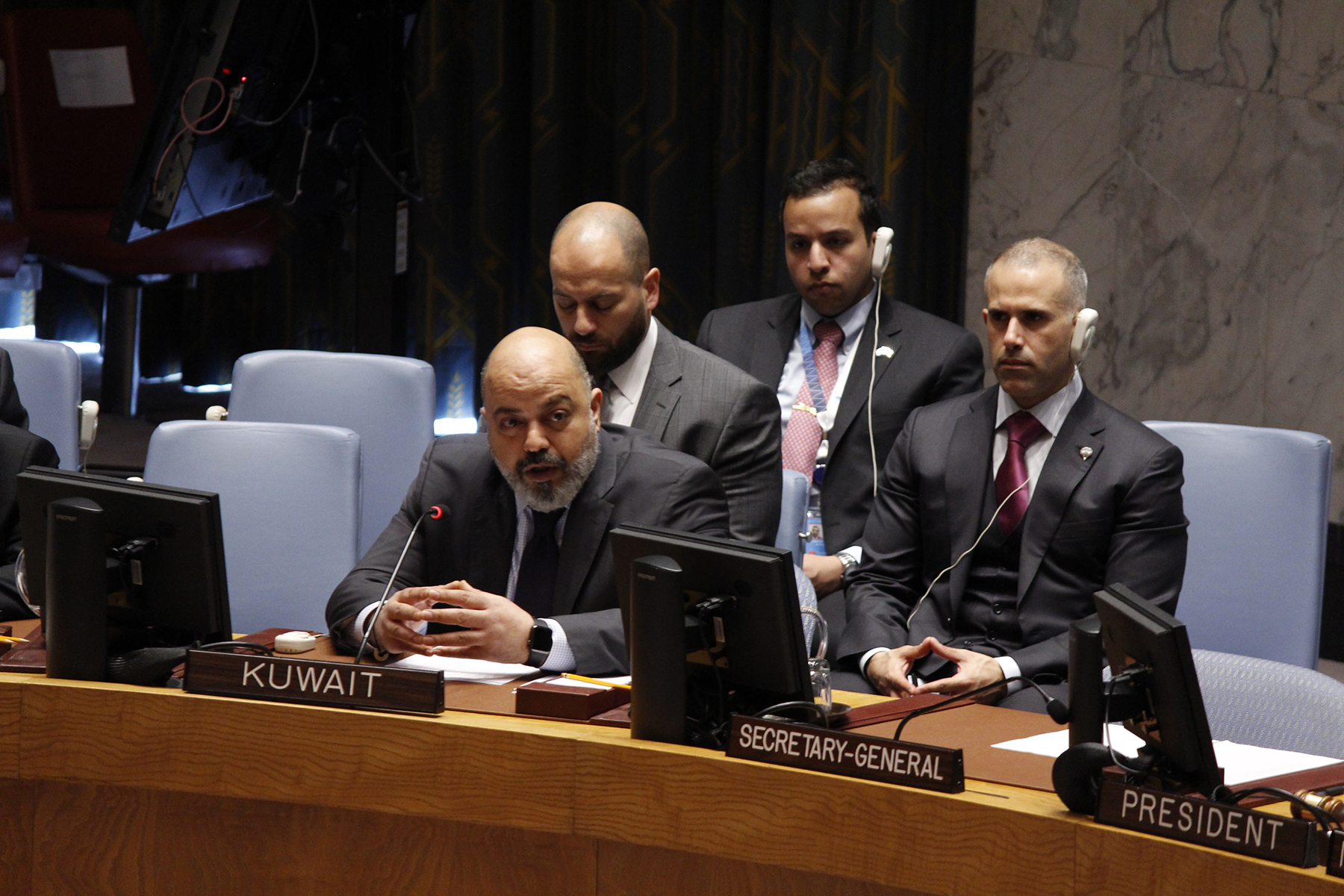LOC02:06
23:06 GMT
 Kuwait delegate Tareq M. Al-Banai during the UN Security Council meeting on the situation in the region
Kuwait delegate Tareq M. Al-Banai during the UN Security Council meeting on the situation in the region
NEW YORK, March 22 (KUNA) -- The State of Kuwait said Thursday the countries of Lake Chad Basin had been targeted by Boko Haram and so-called Islamic State (IS) and other terrorist groups.
In a statement to the UN Security Council meeting on the situation in the region, Kuwait delegate Tareq M. Al-Banai called for stepped up regional and international cooperation to cut off financing for those terrorist groups.
He welcomed the Task Force's efforts to fight those groups and facilitate aid delivery, citing the Council's January and July 2017 presidential statements emphasizing the importance of fighting transnational threats and implementing the UN Integrated Strategy for the Sahel region.
He called for the perpetrators of terrorist acts to be held accountable, citing resolution 2349 (2017) that outlined the need to remedy the causes of climate change in the region.
"The Council should organize another visit to the Lake Chad Basin to review the serious humanitarian situation there before it worsened," he stressed.
The Kuwaiti diplomat also called for reassessing risks and devising new strategies to assist regional Governments.
Speakers at the meeting agreed that better governance of underfunded, poorly managed Lake Chad Basin is the key to resolving conflict and ending the suffering of the people across region.
"The environmental monitoring network in the Lake Chad Basin was inadequate, sparse, poorly funded and badly operated, said Mohammed Bila, a representative of the Lake Chad Basin Commission based in N'Djamena,
He recounted the experience of Kaukiri, a village near the tri point marker between Niger, Nigeria and Chad, where by 2010, farming could not take place because the Komadugu Yobe River had not brought water to the areas around the village.
Yet, there was no sign that the three preceding years of similar agricultural loss had been noticed by local authorities or community organizations.
"As of today, no authority can detect if a similar disaster is occurring," Bila said.
He recommended introducing a participatory system of local water governance. Climate security risk assessments and reporting from local, national and regional levels should also be aggregated and presented to the Council, as an early warning for conflict prevention.
He joined Deputy Secretary General Amina Mohamed, and Senior Conflict Advisor at Adelphi, Chitra Nagarajan, in painting a picture of the factors behind people's suffering in the Lake Chad Basin and driving some to terrorism one year after the adoption of resolution 2349 (2017). (end)
asf.gb